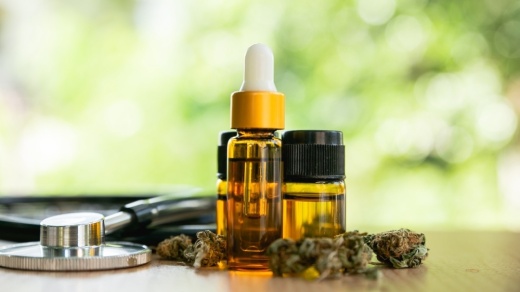Police, fire and EMS employees can be tested for substances including THC, the psychoactive compound in marijuana. Austin's drug tests also screen for several other substances and may be administered either randomly or if there is cause to believe that an employee is working under the influence.
Last year's passage of House Bill 1535 in the Texas Legislature permits doctors in the state to prescribe low levels of THC for conditions including cancer, epilepsy and post-traumatic stress disorder. However, marijuana remains a Schedule 1 controlled substance that is illegal to use under federal law, and Austin's public safety departments allow testing for its use among employees.
During a March 28 briefing at City Council's Public Safety Committee meeting, city staff told officials that conflicting state and federal rules, and ongoing negotiations with first responder labor groups, mean current drug testing policies will stay in place for now.
“In terms of what should we do with regard to the use of low-THC level cannabis, it’s the management’s perspective that, in order to better evaluate and address specific needs and requirements of the individual public safety departments, as well as comply with regulatory requirements ... management will keep the subject of the use of low-THC cannabis as described in HB 1535 within the contract negotiation process," Assistant City Manager Rey Arellano said.
Policy review
The Austin Fire Department presently uses five-panel tests that screen for marijuana; cocaine; opiates; amphetamines; and phencyclidine, or PCP. AFD penalties for drug test violations range from a written reprimand to indefinite suspension.
At the Austin Police Department, employees cannot test positive for illegal drugs, including THC products, or use drugs while off duty. Police officers can also face discipline as severe as termination if a drug test is failed, depending on the circumstances.
Dr. Mark Escott, chief medical officer for Austin and Travis County, said his top concern with allowing prescribed THC in Austin comes down to potential use on the job. And while noting that a variety of substances can also cause impairment, he said the THC issue remains under evaluation.
In response to information from city management and health officials, some council members said they still would like to see Austin take a different approach to prescribed marijuana use, especially for treatment of PTSD. District 1 Council Member Natasha Harper-Madison also pointed out the differing priorities city policy reflects given how testing and other employee oversight is carried out.
“It’s interesting to me that we have so many instances of domestic violence, of substance use disorder—substances that are not detected by way of the testing that we do—but we’re so concerned about this particular substance that remains. I just think it’s inconsistent," Harper-Madison said.
In response to previous council review of the topic, Arellano said Austin staff reached out to more than two dozen cities in places where marijuana laws had recently changed. Of 20 cities that answered Austin's questions, only one—Boston—allows employees to use prescription THC. Cities including Chicago, Denver, Phoenix, Albuquerque, San Antonio and Dallas all said they test employees for marijuana under varying circumstances, and none allow prescription use.
Escott said, at least for EMS, discussions about THC use will continue this year, but no immediate changes are planned.
"There’s conflicts with federal law that is hard for us to get around at this stage even if we wanted to. But we certainly are having those conversations, and it’s really involved in the discussions with labor relations and the employment unions so that we can work through those issues and do what’s reasonable and legal for us to do," Escott said.
Outside of Austin's sworn public safety forces, only some of the city's nonsworn staff are tested for drugs including alcohol and marijuana. Those employees include commercial vehicle drivers subject to U.S. Department of Transportation policy under federal regulations.





